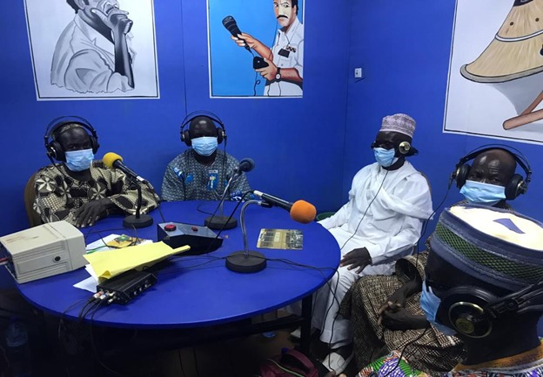Speeches Shim

Municipalities such as Thiou, near Burkina Faso’s border with Mali, are witnessing the proliferation of radical groups led by religious leaders, whose extremist messages threaten to further divide communities in a region that is already struggling to maintain peace.
As a result of divisive messages from these groups, some communities have resorted to violence, due to a lack of constructive initiatives or strategies to counter violent extremism and radicalization. To strengthen community leaders' response, USAID/OTI's Burkina Faso Regional Program (BFRP) collaborated with a national civil society organization, Beog Neere, or “Better Future” in the Moore language, to train local religious leaders on how to teach their followers about violent extremism and radicalization, while encouraging them to promote religious tolerance in conflict situations. From March 2-4, 2020, a total of 40 religious leaders participated; including Imams, Koranic teachers and headmasters of Madrasa schools, traditional leaders, Pastors, Priests, and Catholic scholars. Over the three days, participants discussed the basic principles of violent extremism, and roles and responsibilities that religious leaders can play in conflict mitigation and peacebuilding strategies.
During the training, participants learned about the factors that enable violent extremism and radicalization, in order to understand how using certain words or ideas during their sermons and religious teachings, could deepen divisions between community members.
"I used to tell my congregation that it was the Muslims who brought insecurity to our region, but thanks to this training, I teach all my followers that this situation is not caused by Muslims, but by extremists."
- Simon, Community Church Pastor.
To demonstrate their commitment to a more stable and peaceful community in Thiou, participants established a committee made up of eight religious and traditional leaders: Muslims, Animists, and Christians who represent the most commonly practiced faiths and ethnicities in the community. The committee intentionally did not have a hierarchical structure, since it is meant to facilitate activities that foster peace and reduce ethnic and religious tensions. The committee organized a meeting to discuss topics that would be helpful to share with radio listeners to promote awareness. Five inter-religious committee members then recorded three radio shows on these topics, at Radio La Voix du Paysan in Ouahigouya. The radio station has a 100 km broadcast radius around Ouahigouya, reaching four provinces in the Nord region. At peak times, the radio show reached at least 67,000 listeners.
"The fact that our leaders come together and speak the same language, encourages people to accept our differences, because the way religious leaders behave and speak, influence[s] their followers."
- A listener during one of the radio shows.
Bringing religious leaders together to host radio programs on these critical issues, helped foster inter-religious tolerance, and facilitated important interactions between leaders and their followers. This allowed for frank conversations that helped dispel misperceptions held by listeners across the four provinces.

Comment
Make a general inquiry or suggest an improvement.